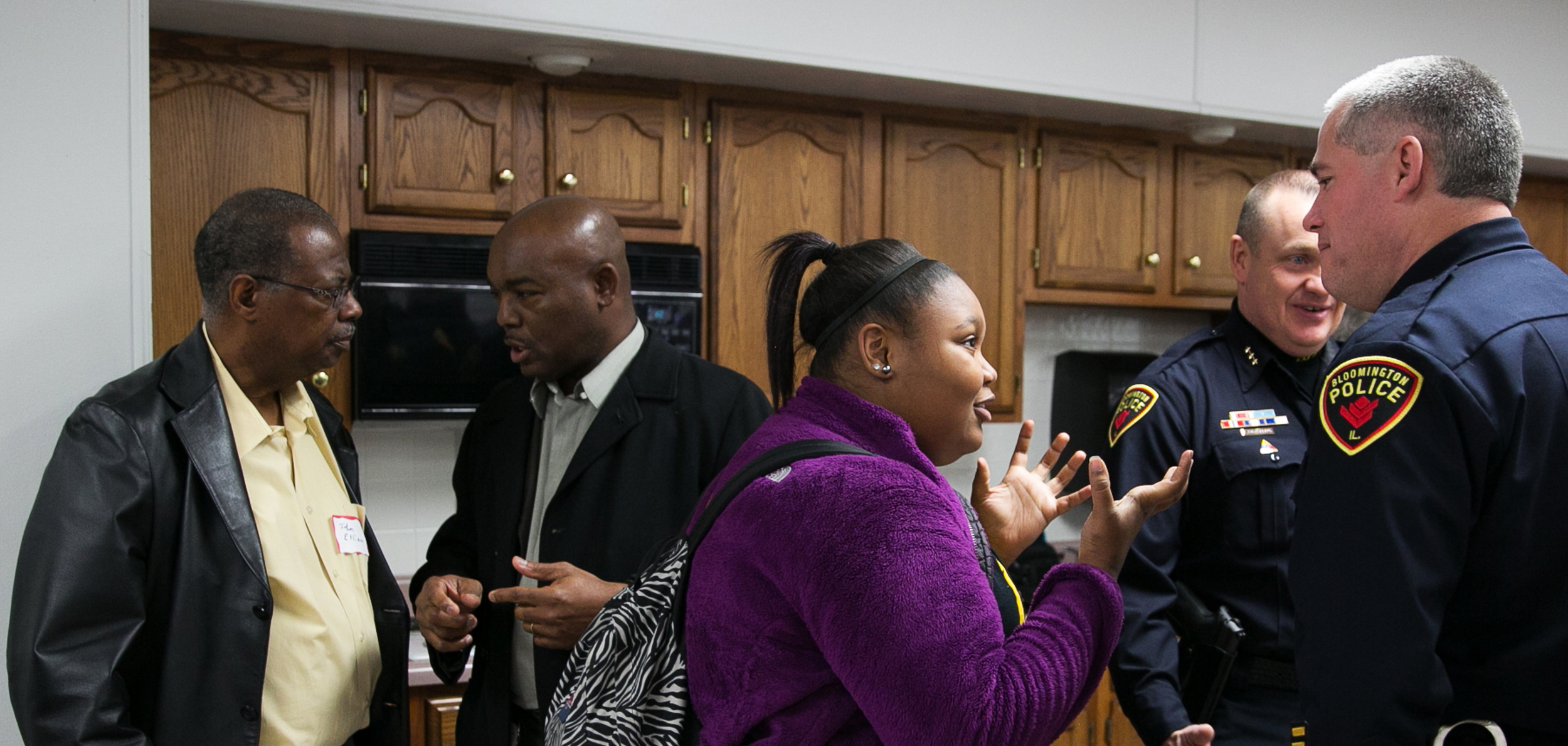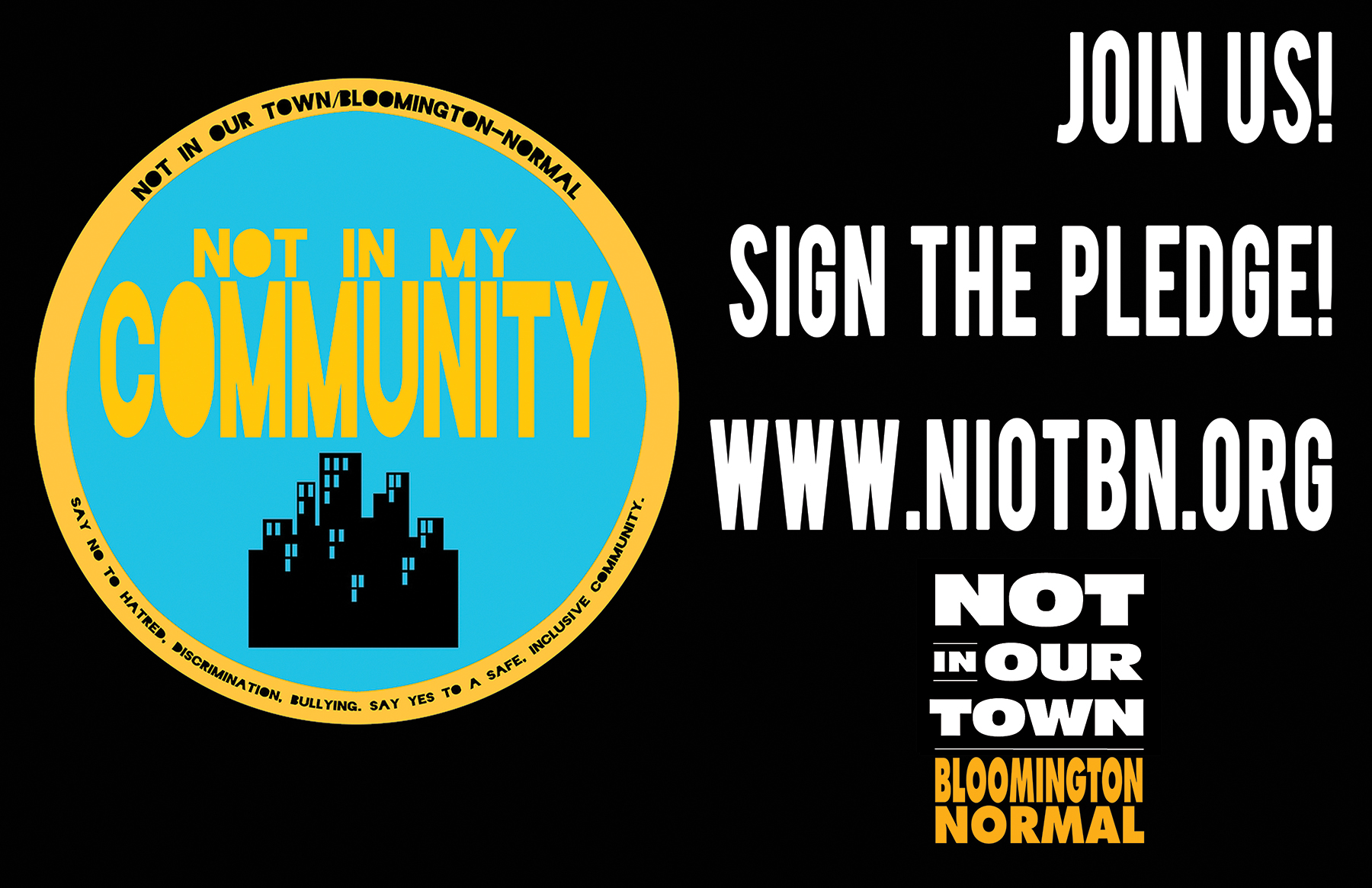Martin Ross
Not In Our Town: Bloomington-Normal
I was a wobblingly uncertain eighth grader wandering warily and dazed through the social revolution and evolution of the early '70s when I met LaRosa Pate and, under her tutelage, Dr. Martin Luther King Jr.
In the Sarah Scott Junior High class catalogue, Ms. Pate was assigned the task of sharpening our command of the language, educating the apathetic and uninitiated on American letters. But you got a special bonus package in LaRosa Pate's eighth-grade English -- she was an uber-serious, occasionally dry-witted, and sternly kind twentysomething African-American who sought to use her teacher's pulpit to shape wet clay like us into solid, safe, thoughtful citizens. Her fifth-hour class was a quirky mélange of textbook lit, drug education (Ms. Pate would have none of the era's new permissiveness), and that then-hidden corner of public school knowledge known as "Afro-American" history.
LaRose Pate introduced me to Dr. King one afternoon in the stacks of the Sarah Scott library, where my buddies and I had decided to squander our study hour with some fairly innocent but audible horseplay. Ms. Pate gently admonished me for my momentary lapse in judgment and dignity, suggesting I had much to live up to -- i.e., another Martin, a man I remembered vaguely as having died a tragic death a few years back. A man, not young, not old even by my adolescent barometer, whose name was murmured in some quarters with reverence, in others with contempt. As Ms. Pate went on, I transitioned from embarrassment to something else. This was a man who sought all men to be equal, who valued character above human superficialities.
It now may seem unfair, almost ludicrous, offering this giant of a man up as a 14-year-old's ethical yardstick, based on the mere commonality of a Christian name. But dreams are often bigger when you're young, and somehow, amidst the cruelty and anything's-possible hope of junior high, Dr. King's Dream imprinted in some corner of my white, semi-formed teen psyche.
Indeed, Ms. Pate had made her indelible mark on me. I recall my exhaustive (and for my folks, exhausting) hunt for all things peanut-based as part of a definitive "English" presentation on the legacy of African-American botanist/inventor George Washington Carver (1864-1943). Linoleum from peanuts, who'd have thought? I remember Mom dutifully venturing to a place she likely otherwise never would have ventured -- Charles T. Hyte Community Center, the social center of Terre Haute's African-American community -- to secure an autograph from Louis Russell, then the world's longest-living black heart transplant recipient. It would serve as the cherry atop a carefully scripted and bound report for Ms. Pate's perusal.
And, I like to think, I began with that gentle scolding in the Sarah Scott library to understand the character that lies potentially under all human skin. That's why, when I sought a quote to accompany the above Not In Our Town: Bloomington-Normal ad that will appear in Monday's Dr. Martin Luther King, Jr. National Holiday Gospel Festival program booklet, I bypassed some of the man's more oft-quoted pearls for a piece of fundamental wisdom that pays ample tribute to Ms. Pate, Dr. King, and all those willing to teach those willing to listen.
"The function of education is to teach one to think intensively and to think critically. Intelligence plus character - that is the goal of true education."






















